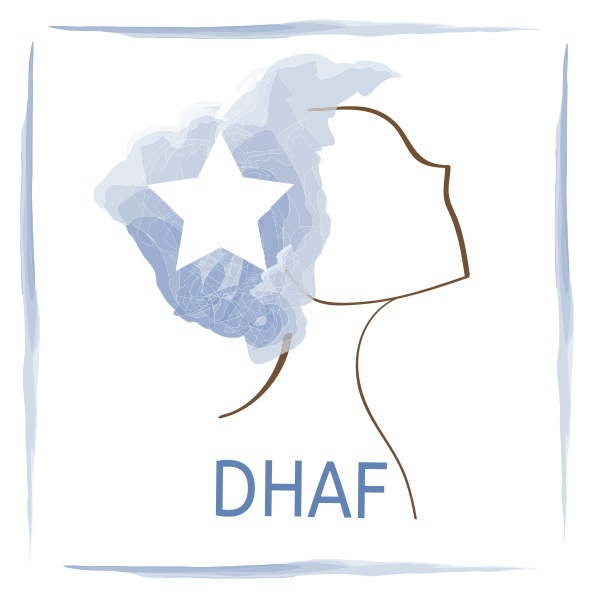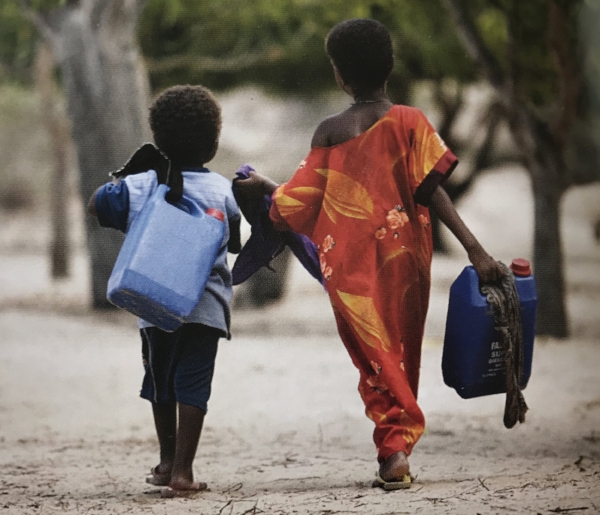Our Beginnings
For more than 9 years, DHAF supported the on-the-ground efforts in Hope Village, a de facto camp-turned-city for internally displaced Somalis. During the civil war in Somalia in the 1990s, Hope Village provided sanctuary to more than 90,000 people. When the war ended, over 10,000 people (more than 300 families) stayed in the Village and it became their permanent home. In Hope Village, residents and surrounding communities received life-saving healthcare, high-quality education, and other services. The Village was a hub for innovation in agriculture, sanitation, and governance.
As the security situation in Somalia evolved, it became necessary for Hope Village to shut down. The families who lived in the Village have moved to surrounding areas. DHAF continues to further Mama Hawa’s legacy by supporting initiatives and organizations on-the-ground in the Horn of Africa that are expanding access to high-quality healthcare, education, and other human rights.
Watch the story of Hope Village and its founder, the esteemed doctor and humanitarian, Dr. Hawa Abdi.
Photo: Seamus Murphy/VII New Corbis.
'equal parts mother teresa and rambo'
Dr. Hawa Abdi, the founder of the Dr. Hawa Abdi Foundation, has been called 'equal parts Mother Teresa and Rambo' by Glamour Magazine. Dr. Hawa showed her tenacity at a young age: she became the first female gynecologist in Somalia, and also obtained a law degree and lectured at Somali National University. Before the start of the civil war in Somalia, Dr. Hawa saw a need for a rural health clinic for women. In 1983, she opened a one-room clinic on her family's ancestral lands along the Afgooye corridor, on the outskirts of Mogadishu. Dr. Hawa gradually transformed the clinic into a 400-bed hospital. When the war started, families fled to take shelter on Dr. Hawa's land. To preserve camp security and peace during the civil war, Dr. Hawa outlawed domestic violence and prohibited the residents from identifying by their clan.
“Dr. Hawa Abdi embodies the resilience, compassion, and grace of the human spirit...she reminds us that we are deeply interconnected and compels us to act. If we seek to create lasting peace, to preserve freedom and protect dignity, we need to stand with leaders like Dr. Abdi.”
hope village WAs born
Soon, 90,000 people, mostly women and children, had come to Dr. Hawa's land, and most stayed. Dr. Hawa and her daughters, Deqo and Amina, worked around the clock to provide care to displaced and injured Somalis. In the height of the bombing, the hospital saw 500 patients per day. Dr. Hawa and her family did not stop there: they created a camp for the displaced Somalis and built a primary school, high school, community agricultural project, and women’s education center. When the war ended, over 10,000 people (more than 300 families) stayed in the Village and it became their permanent home. Dr. Hawa and her family renamed the community the Dr. Hawa Abdi Hope Village. In 2008, Dr. Hawa retired from running Hope Village and her daughter, Dr. Deqo Mohamed, took over, and headed Village operations until Hope Village closed in 2020.
Dr. Hawa in the camp (2007). Photo: Kuni Takahashi/Getty Images.
Around 2012, there were 90,000 residents living in Hope Village - about one percent of Somalia's overall population - mainly consisting of women, children and the elderly.
Photo: Arthur Nazaryan, Delphin Films.
What Hope Village Achieved
Healthcare
Since Dr. Hawa first opened her clinic in 1983, she and her staff always provided general, emergency and maternal care to displaced Somalis independent of their clan, gender, religious and political affiliation.
The Dr. Hawa Abdi General Hospital Since was at the center of Hope Village. It provided the only source of high-quality, free healthcare in the Afgooye Corridor -- the region in Somalia with the greatest number of displaced people during the civil war. It has been central in the development of medical capacity throughout Somalia, playing a vital role in training community members to become nurses and midwives and educating the general population about good health.
The 400-bed hospital provided vaccinations, pediatric and maternal care, gynecological and obstetric services, had two operating theaters, and a laboratory and pharmacy. On average, 20 babies were born at the hospital each day. Skilled healthcare workers delivered 98% of births, and the maternal mortality rate was zero — in a country where 1 in 12 women still die in childbirth.
The hospital’s emergency care and training capacity included a Cholera Treatment Centre (CTC) to provide treatment and care for those most severely affected and a Therapeutic Feeding Department to assist severely malnourished children. Hospital staff trained community members to become nurses and midwives and to do other jobs that sustained the Village.
Pharmacy at the Dr. Hawa Abdi General Hospital.
Education
DHAF supported efforts to build a primary and high school in Hope Village. The Waqaf-Dhiblawe Primary School served more than 600 students. The high school served more than 200 students, many of the whom went on to attend four-year universities. Both schools sought to lay the foundation for a new future by providing a new generation of Somali leaders with skills, opportunities, and a fundamental understanding of human rights and their own political agency.
Photo: Tobin Jones.
In 2015, DHAF commissioned the Orville H. Schell Jr. Center for International Human Rights at Yale Law School to design a four-year curriculum on human rights and conflict resolution for our high school students. For several years, a team of Yale students worked with educators on-the-ground in Somalia to create activities and lesson plans that challenge students to think critically about the meaning and application of human rights, the history and future of Somalia, and how they can participate in civic life. The curriculum was then piloted in Hope Village and with trainee teachers in the Faculty of Education at Somali National University.
Aspire Africa: Professional Development for Teachers in Post-Conflict Zones
To provide teachers in Somalia and beyond with the resources, mentorship, and training they need to promote student-centered learning and provide for the needs of students who have experienced trauma, DHAF partnered with Solutions for Interrupted Education, Inc. to launch Aspire Africa - a professional development program for teachers in Somalia and other post-conflict zones.
In June 2019, we piloted the Aspire Africa program with teachers from Somalia, Uganda, Rwanda, Sudan, and the DRC at African Leadership University in Kigali, Rwanda.
GOvernance
Dr. Hawa also developed an innovative, autonomous governance and justice system for Hope Village, in which a council of respected community members mediate disputes and investigate crimes.
In Hope Village, protecting women’s rights was always a priority: Dr. Hawa worked with the community to create a safe haven, expressly outlawing domestic violence, female genital mutilation, and other practices that violate women’s rights.
COMBATTING MALNUTRITION & Responding to crises
Somalia as a whole, and the Afgooye Corridor in particular, are increasingly vulnerable to severe droughts. When crises hit in Somalia, DHAF supported Hope Village staff’s response efforts.
In 2017, when a devastating drought hit Somalia, Hope Village set up an emergency feeding center that provided meals to more than 600 people per day, with support from DHAF. Meanwhile, the hospital treated more than 3,500 children for malnutrition. Hope Village also teamed up with a group of volunteers from the Somali diaspora to deliver food to the neediest and to map the crisis. Abaraaha (which means ‘famine’ in Somali) created a unique, online, interactive map that let us track the nationwide crisis – disease outbreaks, numbers of deaths, where food had been delivered and where food was needed, and how to coordinate other humanitarian aid efforts.
Every Ramadan – the holy month in Somalia – Hope Village staff offered free meals to 500 people every day, the majority of whom were women and children. In 2018, the Village provided 14,500 people with meals.
Feeding program in response to 2017 drought.
SUSTAINABLE AGRICULTURE
Twenty years of food aid in southern Somalia have left farmers bankrupt and the country aid dependent. Climate change is soon becoming one of the biggest challenges facing the Horn of Africa and will threaten the lives of hundreds of thousands of Somalis. Hope Village’s Agriculture Program recognized that the only solution to Somalia’s food security crisis is to develop local agriculture, and this food must be grown intelligently and efficiently to compensate for these conditions. Hope Village worked to develop cutting-edge sustainable agricultural solutions, such as low-cost and low-tech biotechnological interventions:
MORINGA OLEIFERA: We conducted a pilot study of this tree in Hope Village. The fast-growing and resilient Moringa Oleifera tree has rightfully earned the name the “Miracle Tree.” Its seeds contain six times more iron than spinach, higher calcium than milk, more potassium than banana, and its leaves are 27% protein. In Africa, it is becoming a groundbreaking food source to help counter malnutrition in children and nursing mothers, and prevent imminent starvation. On top of their superior nutritional value, seed proteins of Moringa trees can also disinfect and clear turbid water, reducing the levels of harmful bacteria by 90-99%.
MULTI-CROPPING SINGLE STRAND AGRICULTURE: In order to ensure a continual food source for the camp, we have worked to implement a pesticide-free multiple cropping system of companioning crops. The intensive cultivation of these crops has used an indigenous method of organic farming.
MILK FORTIFICATION: By fortifying milk with essential nutrients, namely DHA, an omega-3 fatty acid, we have aimed to reduce deficiencies of micro-nutrients and improve dietary regimes.
Two children walk from the well in Hope Village. Photo: Sabal Abdulle.









